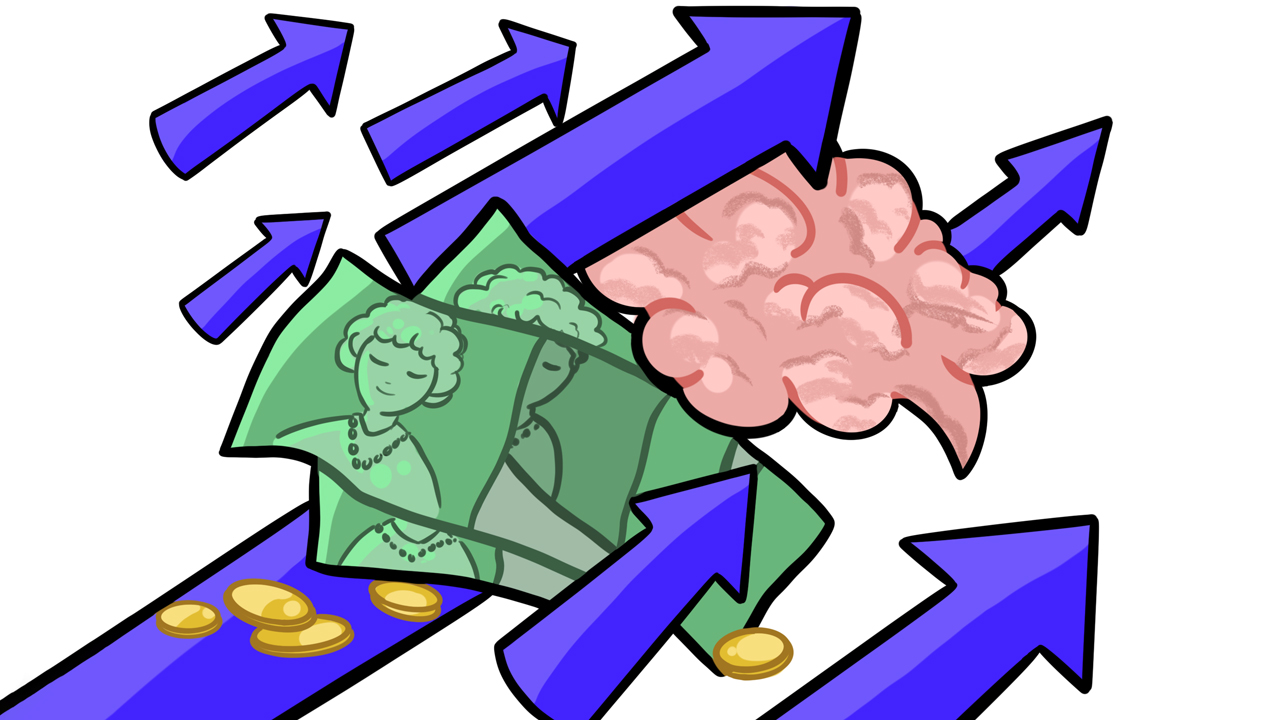How proper accounting brings good karma
 CREDIT: NINA HEPPLEWHITE
CREDIT: NINA HEPPLEWHITEThe lessons hidden in my accounting class should be audited by everyone.
Never did I think that an accounting class would change the way I look at my entire life. I’ve always been into self-help, self-improvement, and life hacks, but it wasn’t till the second week of my accounting class that it all clicked.
Accounting is just being accountable for every decision, big or small, in your life.
The key to thriving in the business world, where the language is “finance,” is having a good accountant by your side. Accounting reflects the financial decisions that have been made within a time period, and their effects on a company’s well-being. Sheri Mankal, a professor within the IT department at Fanshawe College, said accounting impacts all areas of a person’s life.
“Having a sound understanding of finances makes all aspects of your life more manageable. It definitely reduces stress,” Mankal said.
When we look over our credit card statement or our monthly bank statement, there is a story being told there. It could be a mystery, a feel-good novel, an adventure, or a horror story. According to Mankal, students who don’t make a point to regularly check their financial statements waste time accumulating not just debt but stress.
“If you are living paycheque to paycheque, or don’t keep track of your spending, it’s so easy to end up in financial troubles. Many people have their lives turned upside down by not being in control of their finances. I think younger people are more susceptible to this as many of them don’t check their bank accounts or credit card statements regularly.”
We are the authors even in our financial story. I was told once that ‘what gets measured gets managed.’ It could be keeping an account of time allotted for studying, time set apart for checking bank and credit card statements, or time spent organizing our desk and paperwork. My accounting class has also taught me that everything has a place. Organization and having a place for everything reduces the chaos in our life. Mankal said that having a sense of control impacts not just our finances, but our mental health as well.
“If you are experiencing stress or chaos in any aspect of your life, it will start to have a negative impact on other parts of your life and eventually on your mental health. Financial instability can be…overwhelming when a person feels out of control, as money affects so many other parts of our lives.”
Accounting is not just about profitability or lack thereof, it’s about every decision we make in life and how those decisions can be measured and managed. Knowing your numbers helps you calculate your “break-even point.” Your numbers involve the number of hours we sleep, study, spend with our friends, spend on fitness etc. If we spend, we have to replenish that account. It’s karma; what results are produced by our actions.
In the accounting world, everything is recorded in the right place. If it is not organized, the books won’t balance. According to Mankal, a monthly check-in can keep you on the path to prosperity.
“Completing a monthly bank reconciliation and monthly check of your credit card statements would make a huge difference. By completing these tasks, one is always aware of one’s spending. They can see how much is coming in and going out each month and can be aware of any unauthorized activity sooner rather than later. Budgeting is also great, but for people who are math-phobic or extremely busy, a monthly bank rec is an effective, time-saving alternative.”
















